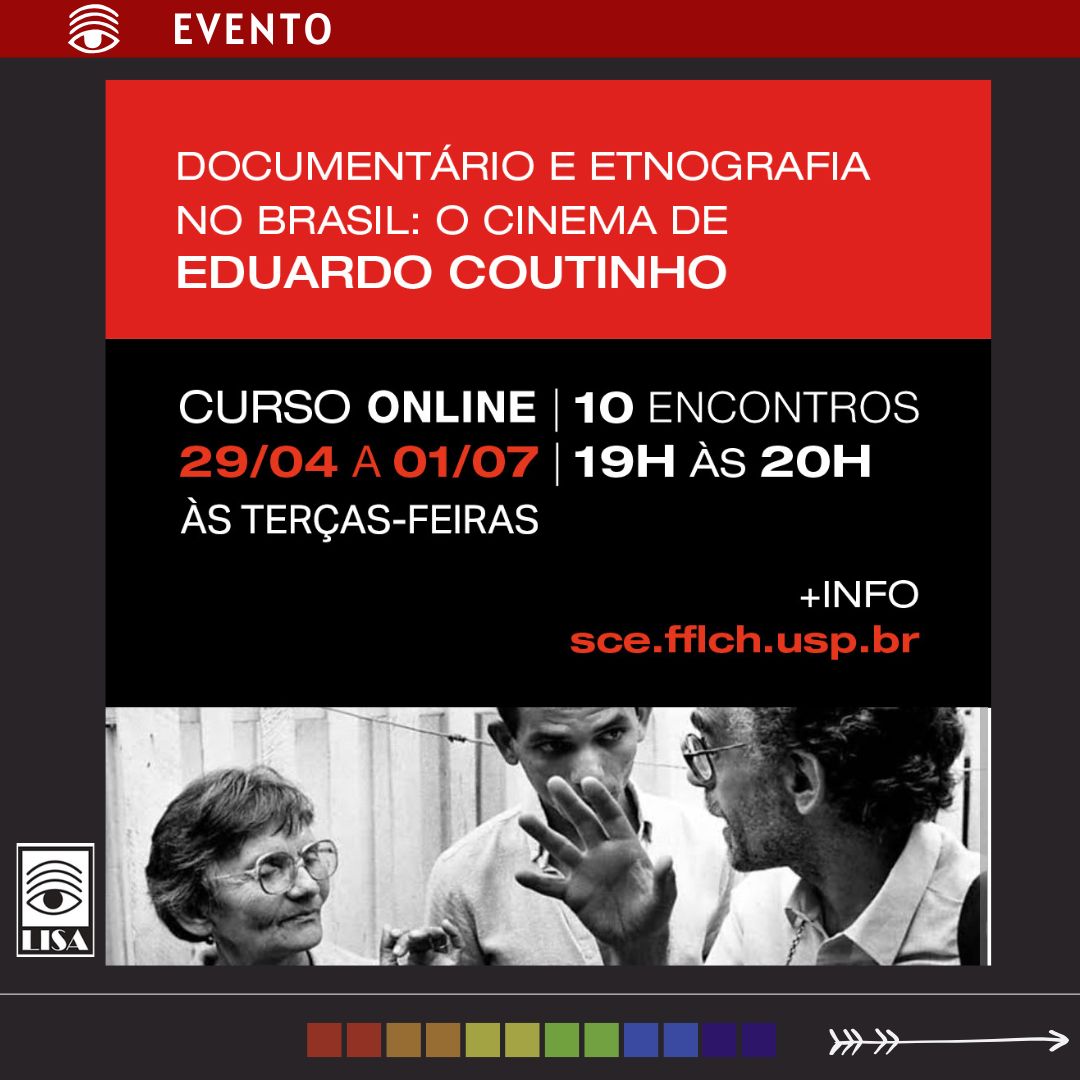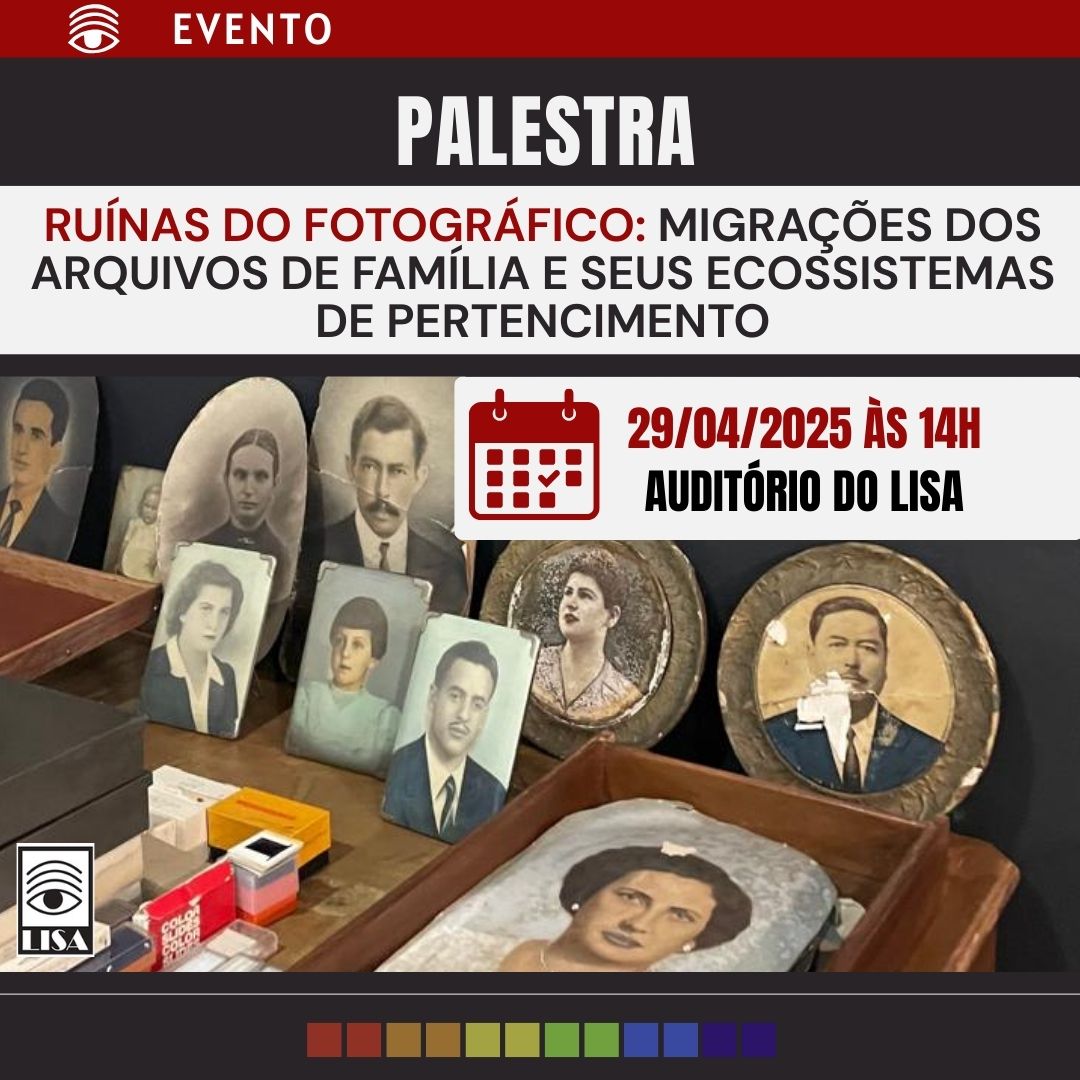Registration for the extension course "Documentary and Ethnography in Brazil: The Cinema of Eduardo Coutinho" is open until April 21, 2025. It will be held from April 29, 2025 to July 1, 2025, in distance learning.
The course aims to explore the relationship between Eduardo Coutinho's documentary cinema and ethnographic practice, highlighting how the Brazilian filmmaker uses documentary as a tool for reflecting on the social reality of Brazil, especially after 1960. Based on the analysis of key works by Coutinho, the course seeks to investigate the specificities of his cinematic approach, which dialogues with anthropological methods of observation, description and the prioritization of the local and the particular. In addition, it intends to discuss the historical and aesthetic impact of documentary cinema in Brazil, considering that Coutinho produced films over half a century, which configures his work as a kind of documentation of the historical, social and political inflections that marked the country during this period. The course also aims to fill a gap in academic studies on Coutinho's work within anthropology, offering a critical and integrated reading of cinema and ethnography.
Duration: 10 hours
Certificate of participation
Vacancies: 50 participants
To register, access the Apolo System (click here) and follow the instructions.
For complete information about the course, registration, exemption and enrollment, access the FFLCH Culture and Extension Service website: https://sce.fflch.usp.br/node/6029
If you have any difficulties during registration, ask the Apolo System team for help: apolo@usp.br
The Laboratory of Image and Sound in Anthropology (LISA-USP) will host on April 29, 2025, at 2:30 p.m., the lecture "Ruins of photography: migrations of family archives and their ecosystems of belonging" by researcher Dr. Fabiana Bruno, a postdoctoral fellow at the Department of Anthropology at USP supervised by Professor Dr. Sylvia Caiuby Novaes.
The lecture will address the context and policies of “emerging collections” formed with abandoned or discarded photos, in particular, vernacular family photographs unlinked from personal albums. The starting point will be the presentation of an overview of the stories of three “emerging collections” researched: Arab Image Foundation (AIF), Lebanon; Found Photo Foundation, England; and ACHO – Arquivo Coleção de Histórias Ordinárias, Brazil.
In these emerging collections, the collected and sheltered vernacular photographs – from diverse sources – acquire other ways of survival, when they are destined for a “second life” in re-gatherings, within the scope of “anarchical” initiatives (Seligmann-Silva, 2023) in different places around the world. In what way does the way of life of these photographs, when gathered in other archival environments, devoid of family belongings, point to other epistemologies of images and archives in anthropology?
The “ruins” (Tsing, 2019; 2022) of family albums, the destitution of their ecosystems of belonging and the “survival” and “assembly and reassembly” of these images (Warburg, 2010; and Didi-Huberman, 2013) are some of the topics discussed in the lecture.



